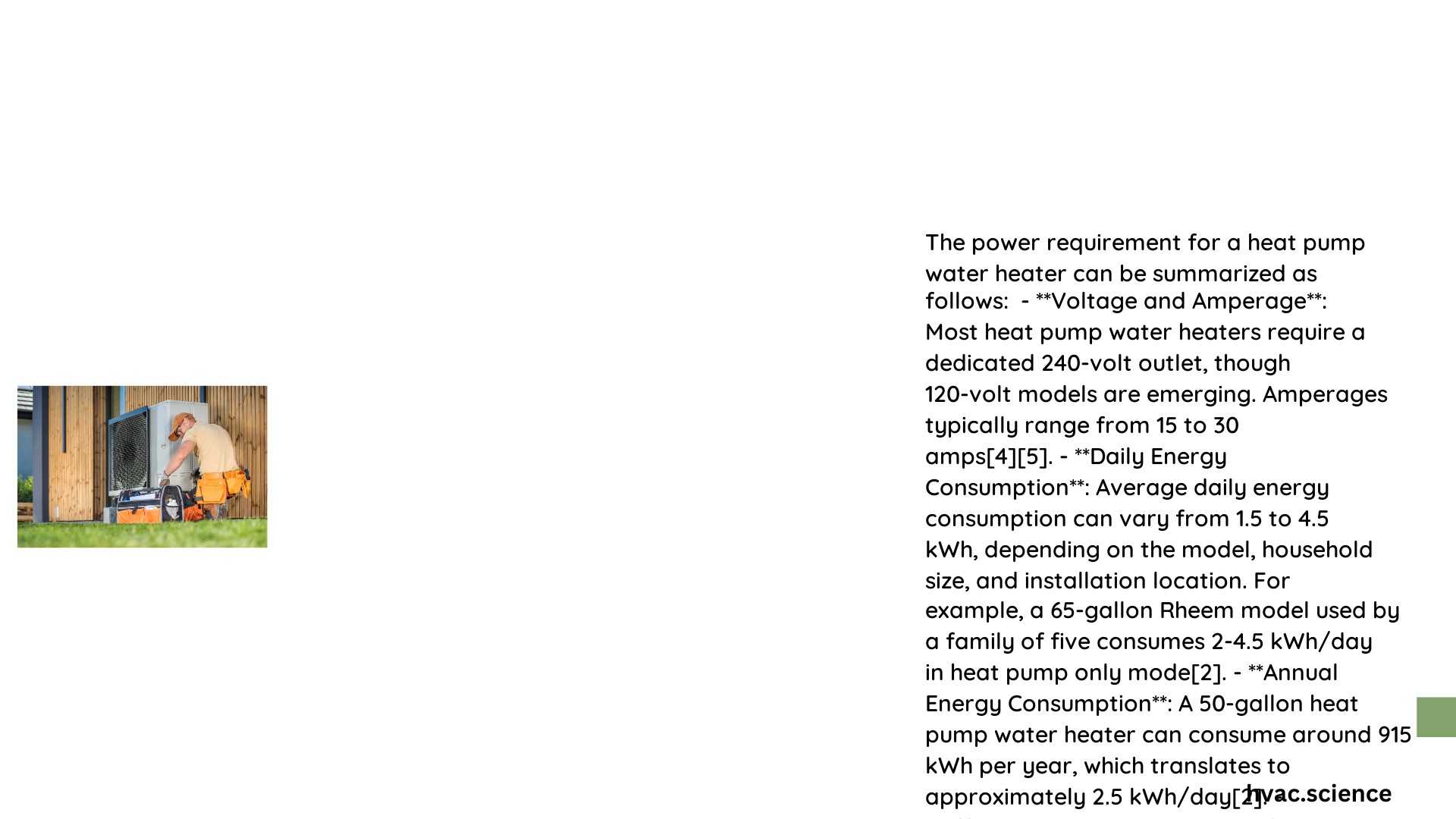Heat pump water heaters represent a sophisticated energy solution with complex power requirements that vary based on voltage, capacity, and operational mode. Understanding these electrical specifications is crucial for homeowners seeking efficient hot water systems that balance performance, energy consumption, and long-term cost-effectiveness. Typical models range from 120V low-power units to 240V high-capacity systems, each with unique power consumption characteristics.
What Are the Basic Electrical Specifications for Heat Pump Water Heaters?
Voltage and Power Consumption Fundamentals
Heat pump water heaters operate across two primary voltage configurations, each with distinct power requirement characteristics:
120V Models
- Average power consumption: 400-500 watts
- Suitable for smaller households
- Easier installation with standard electrical outlets
- Lower peak energy demand
240V Models
- Average power consumption: 550-750 watts
- Higher heating capacity
- Supports larger household hot water needs
- More complex electrical installation requirements
| Voltage Type | Power Range | Installation Complexity | Recommended Household Size |
|---|---|---|---|
| 120V | 400-500W | Low | 1-3 people |
| 240V | 550-750W | High | 3-6 people |
How Do Energy Efficiency Ratings Impact Power Requirements?
Understanding Efficiency Metrics
Heat pump water heaters are evaluated using two critical efficiency measurements:
- Energy Factor (EF)
- Measures energy output versus input
- Higher values indicate superior efficiency
-
Typical range: 2.0 – 3.5
-
Uniform Energy Factor (UEF)
- More comprehensive efficiency rating
- Considers multiple operational conditions
- Typical range: 3.3 – 4.0
What Factors Influence Power Consumption?
Key Determinants of Electrical Usage
Several critical factors impact a heat pump water heater’s power requirements:
- Household Size: More occupants increase hot water demand
- Ambient Temperature: Colder environments require more energy
- Water Heating Mode:
- Heat pump only: Lower power consumption
- Hybrid mode: Higher energy usage
- Tank Capacity: Larger tanks need more power to heat
How to Calculate Precise Power Requirements?
Practical Estimation Methods
To determine your specific power needs:
- Calculate daily hot water usage
- Assess household occupancy
- Evaluate ambient temperature conditions
- Consider tank size and efficiency rating
Example Calculation:
– 4-person household
– 50-gallon tank
– Average daily hot water usage: 60-80 gallons
– Estimated daily power consumption: 2-4.5 kWh
What Are Installation Electrical Considerations?
Electrical System Compatibility
Critical electrical infrastructure requirements:
- 240V Models:
- Dedicated circuit needed
- Potential electrical panel upgrade
-
Professional installation recommended
-
120V Models:
- Standard outlet compatibility
- Minimal electrical modifications
- DIY-friendly installation
Cost and Energy Savings Analysis
Long-Term Economic Perspective
| Metric | Heat Pump Water Heater | Traditional Electric Heater |
|---|---|---|
| Annual Energy Cost | $100-$200 | $400-$600 |
| Operational Efficiency | 300-400% | 90-95% |
| Estimated Savings | $200-$300/year | Baseline |
Conclusion

Understanding power requirements for heat pump water heaters involves analyzing voltage, efficiency ratings, household needs, and installation complexities. Careful evaluation ensures optimal energy performance and cost-effectiveness.
